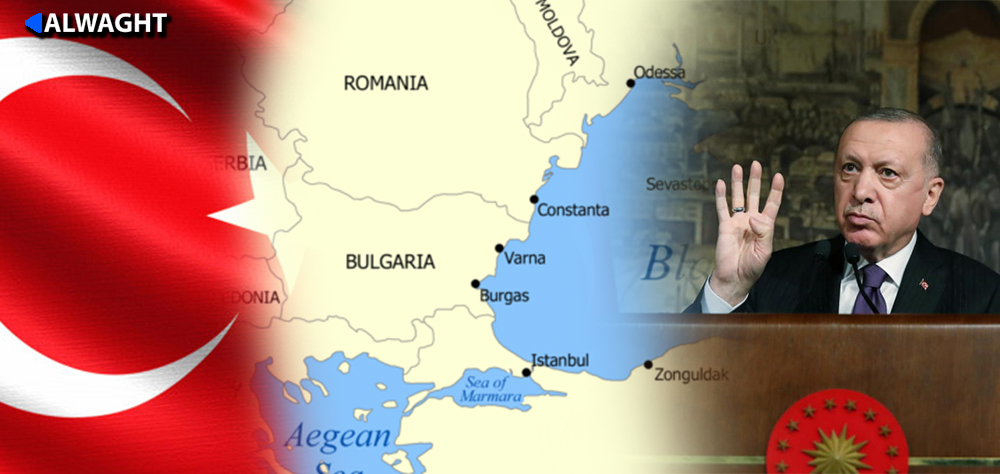Alwaght- About 500 years ago, Sultan Suleiman I of Ottoman Empire thought of building a canal to bypass the Bosporus Strait. Now this project, one of the largest Turkish projects under President Recep Tayyip Erdogan, is a dream coming true.
A project to build a 40-kilometer water passage north of Istanbul to connect the Sea of Marmara to the Black Sea has begun in mid-2021. Erdogan first unveiled the megaproject in 2011.
Turkish officials argue that the new canal is vital to reduce traffic pressure through Istanbul's Bosphorus Strait, a major route for world trade, through which more than 38,000 ships pass annually. The project, which will be the most expensive construction project in modern Turkey, is estimated to take seven years to build and cost from $9.3 billion to $14.6 billion.
Severe criticism from opponents
Despite Erdogan's government officials talking about the far-reaching benefits of the Istanbul canal for the Turkish economy, many stand on the opposite side bearing skeptism.
In early April, 104 retired admirals in an open letter warned of a possible threat of Istanbul canal project for the Montreux Convention, calling it an agreement that "best protects Turkey's interests". The letter was met with bitter reaction from Erdogan government and detention of 10 signatories.
Geopolitically, the project calls into question Turkey's commitment to an international transport treaty in the Bosphorus and Dardanelles. The Montreux Convention guarantees the free passage of civil ships through the Bosphorus and Dardanelles in times of peace and war. It also restricts the use of military ships by non-Black Sea countries in the strait.
The new canal will allow ships to transit between the Mediterranean and the Black Seas without crossing part of the straits covered by the treaty.
From another dimension, the detractors talk about environmental impacts of the projects already raised by experts.
Many argue that this new canal will cause a lot of damage to the environment as it is planned to cross some protected lakes. It crosses the lakes and rivers that provide Istanbul water, and as a result, the shipping traffic threatens marine ecosystems and freshwater supply.
Another criticism is that inviting the foreign investors will more severely subject the Turkish economy, which is deeply dependent on the foreign investment, to the global investors' decisions and behavior.
In recent years, the Turkish economic picture went even gloomier. The national currency lira has halved since the 2018 currency crisis, reaching a low of 8.52 against the US dollar in November last year. The role of foreign investors and Turkey's economic dependence on the behavior of these investors has been quite evident in this economic decline. Such economic quakes have been hard to bear for people. Last month's inflation rate was 16.2 percent and the unemployment remains high as it has been 13.4 percent in February.
In addition, many have pointed to the failure to reach ambitious economic forecasts in previous major projects, which forced the government to implement financial guarantees to contracted companies, resulting in declined public services and reduced government commitment in this sector.
For example, the government is said to have paid more than $515 million in 2019 to the operator of the third Bosphorus bridge, which opened five years ago, to make up for the projected revenue deficit from tolls.
While Turkish officials point to the Suez Canal blockade caused by a huge ship stuck in the crucial waterway in their support of the new Istanbul canal and its role in further facilitation of the shipping and incomes to the national economy, critics say Bosporus traffic reduced considerably in the past years, especially that pipelines carrying energy from Central Asia and Russia to Europe are rendering the oil and gas transportation less favorable.
According to the Turkish transportation ministry, between 2008 and 2018, the number of ships passing through Bosporus decreased to 40,100 from 54,400 annually. The traffic incidents are lower by a third since 2003, the Turkish General Directorate of Coastal Safety reported.
Additionally, vessels currently can cross the strait for a nominal fee, and there is little incentive to use an alternative canal, experts suggest.
Critics also warn of increasing inequality and the economy becoming rentier. Massive and cheap purchase of farming lands along the new canal by the private companies promotes the speculations that the private contractors are the key gainers of the project who suggest building a new city in the canal's vicinity in 8,300 hectares of land bought from people.
The real estate companies' shares grew 8.65 percent on Istanbul stock market, officially called Borsa Istanbul, when the government in late March approved zoning plans for the canal.



























